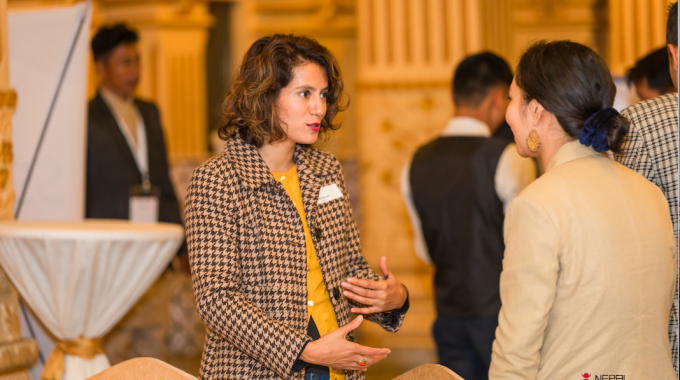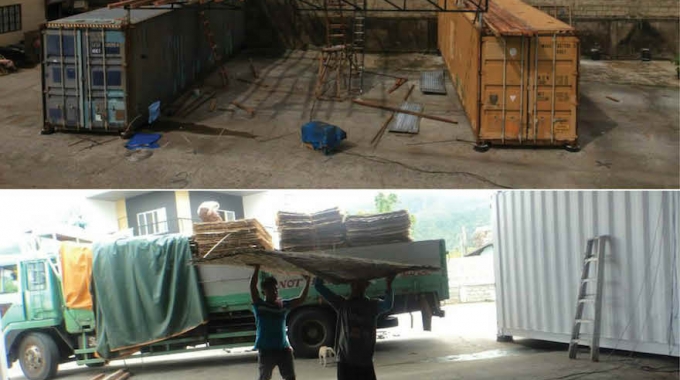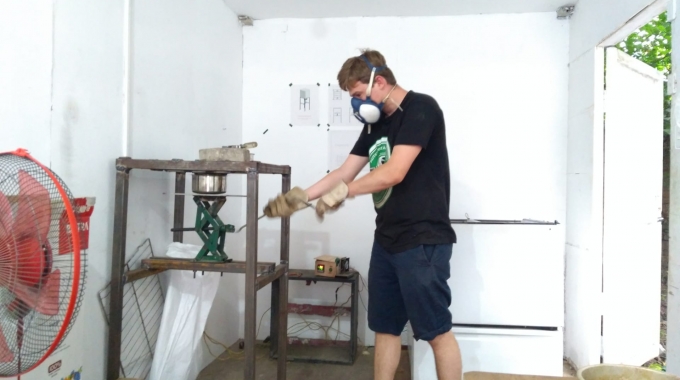
Value Out of Waste
Footpaths and gutters strewn with plastic waste, such as biscuit wrappers, is a common sight in Nepal. The plastic we see on the ground often ends up in streams, rivers, and eventually in the ocean. If they’re picked up, they are dumped in landfills where they sit forever. In many cases in Kathmandu, they end up in small piles all around the city, where they are openly burned. This burnt plastic produces smoke, adding to the air pollution that currently chokes Kathmandu. This common food packaging belongs to a class of soft plastics that aren’t recyclable.
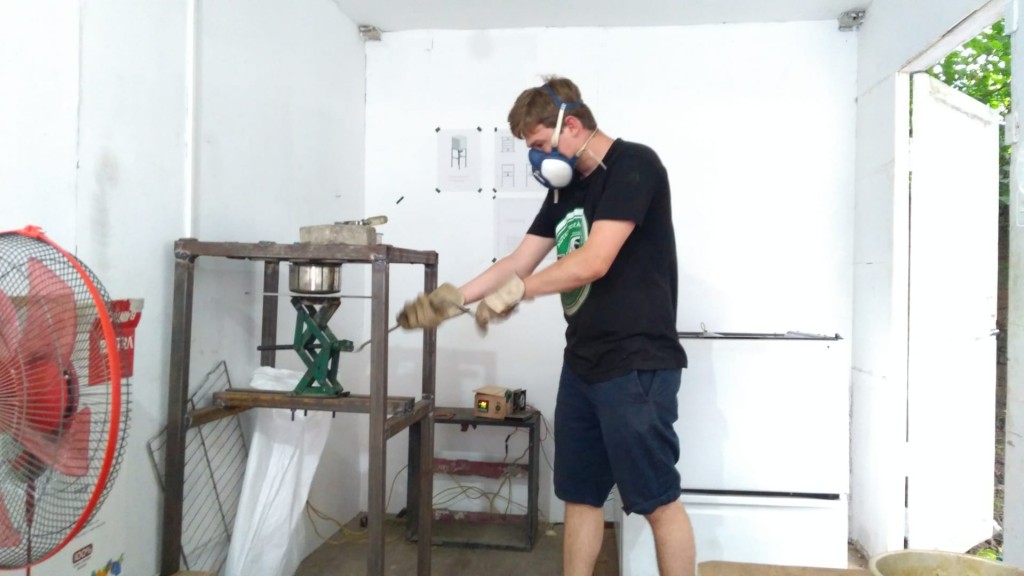
Marc Vruggink is an intern from the Swiss research institute, Eawag, working on waste management in Kathmandu for two months this summer. He is a master’s student studying environmental engineering and has been conducting research on small scale, soft plastic treatment and recycling. Marc has been working in our Makerspace to design and prototype the construction of a small scale compression machine that would compress plastic into different objects as hard sheets that could later be used as a multipurpose raw material.
Marc has been partnering with Clean up Nepal’s intern, Suman Khatri, and together, they have been based at Nepal Communitere to chip away at their prototype.
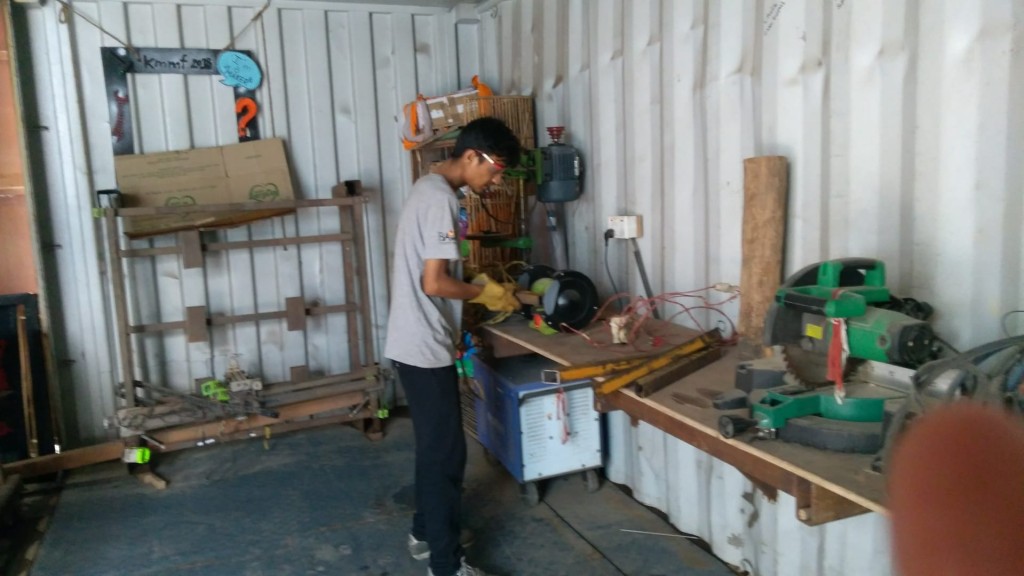
The technology that they’re trying to use is one suggested by the group Precious Plastics which is a global group of people working towards a solution to pollution caused by plastic, and share tools, techniques and knowledge on addressing the issue. To make the compression machine, Marc, Suman, and Clean up Nepal, have,remodeled and upgraded an old oven for the main machine and have collected plastic wrappers– mostly biscuits, instant noodles, and rice packaging.By melting these plastics in a way that is non-toxic and doesn’t change their chemical composition, the machine is able to melt and reform the plastic to create different products such as sheet material, clipboards, and later bigger sheets that could possibly be used as raw material for bigger objects like tables.
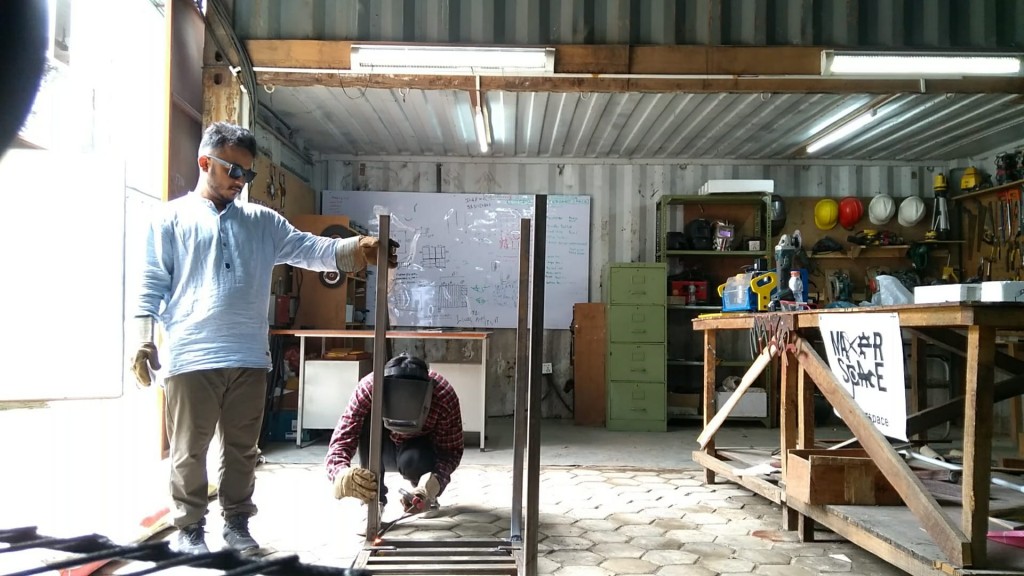
“The idea is to create value out of waste, which typically doesn’t have value,” says Marc. “The hope is that projects and research like this will trigger discussions and conversation around waste and pollution.” The plastic food wrappers can’t be reused, so by finding a way to treat this type of plastic waste and converting it into a usable material, there is potential to solve a myriad of environmental and waste management complications that Nepal currently faces.

